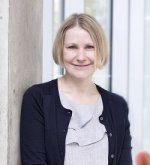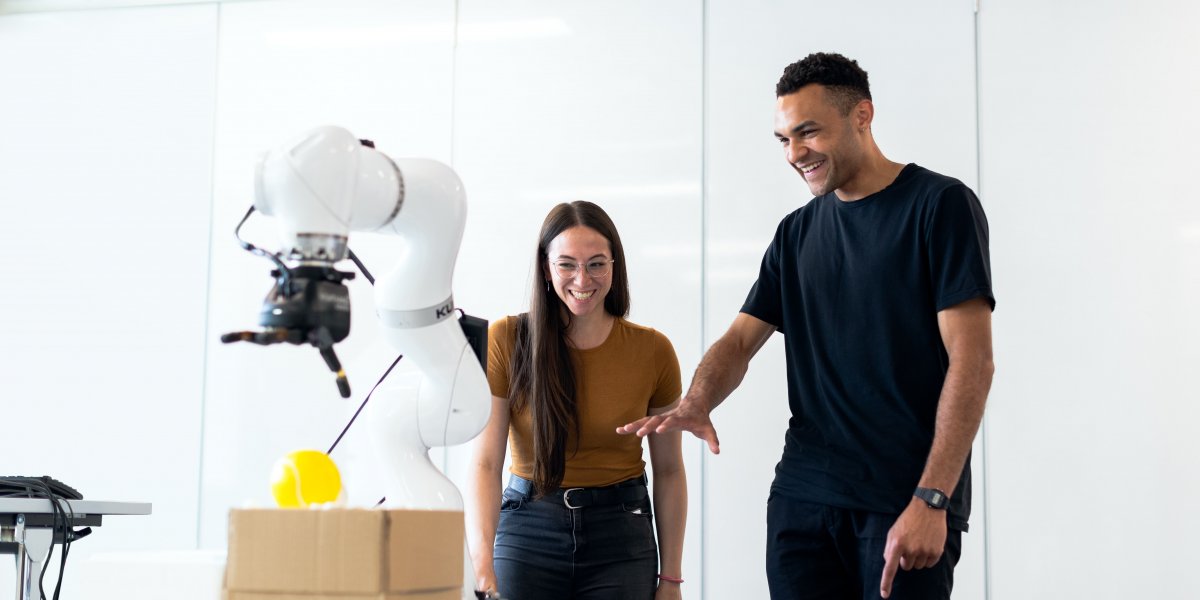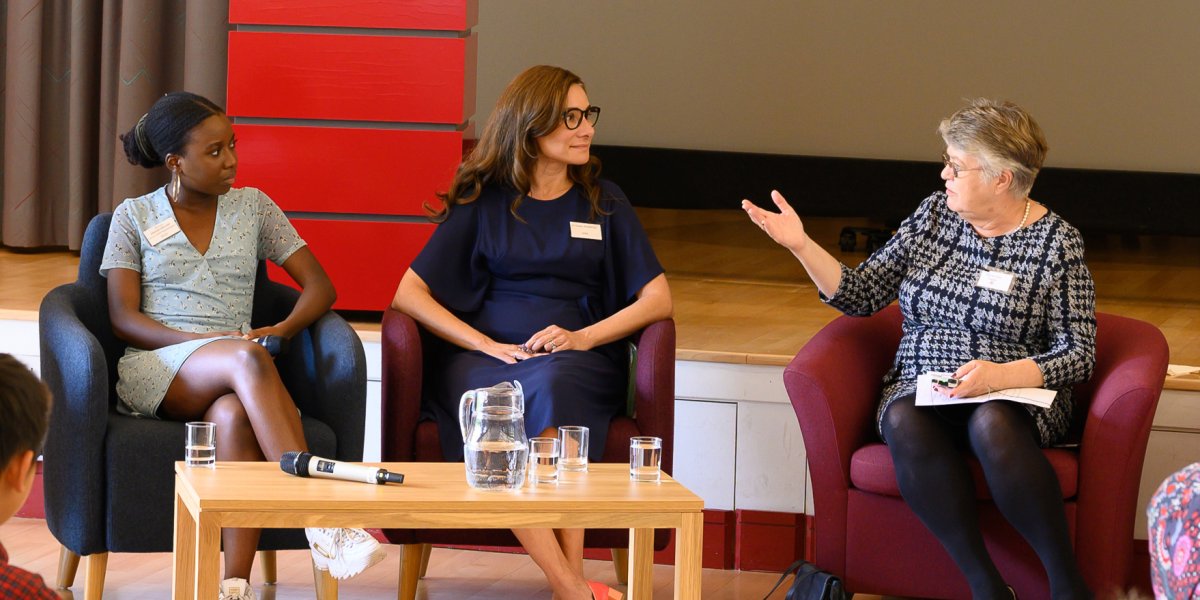Placing humans at the centre of Artificial Intelligence
Placing humans at the centre of Artificial Intelligence
Artificial Intelligence (AI) is rapidly transforming many aspects of our world. It is an incredible privilege to be a part of such an exciting and impactful research field. With that privilege comes the responsibility to ensure that this technology is designed to serve the best interests of humanity. In this conversation, Professor Anna Korhonen (Trinity Hall 1996), Dr John Suckling and Professor Per Ola Kristensson discuss why it's critical to place humans at the centre of AI development and why they are launching a new interdisciplinary Centre dedicated to this cause in Cambridge.
Speakers
Professor Anna Korhonen (Trinity Hall 1996 and Fellow of Churchill)

Anna Korhonen is a Professor of Computational Linguistics in the Faculty of Modern and Medieval Languages at the University of Cambridge and a Senior Research Fellow of Churchill College. Together with her Language Technology Lab she is developing Artificial Intelligence that can understand human language. Based at the University's School of Arts and Humanities, she is particularly interested in human-centric AI that draws on the understanding of human cognitive, social and creative intelligence and how that can be used to promote social and global good. She has recently worked on making language technologies geographically and socially more inclusive and on applying AI techniques to solve problems in cognitive, biological and medical sciences.
Professor Per Ola Kristensson (Fellow of Trinity)

Per Ola Kristensson is a Professor of Interactive Systems Engineering in the Department of Engineering at the University of Cambridge and a Fellow of Trinity College. He leads the Intelligent Interactive Systems group which is part of the Engineering Design Centre. Per Ola designs intelligent interactive systems that enable people to be more creative, expressive and satisfied in their daily lives. In particular, he designs, builds and evaluates new user interface technologies underpinned by recent advances in machine learning, language modelling and signal processing. An example of an area he is currently exploring is using AI to enable users to interact with a blended version of the physical and digital world using augmented reality glasses. He also has a long-standing research interest in AI-enabled text entry, in particular for non-speaking individuals with motor disabilities.
Dr John Suckling

John Suckling is Director of Research in Psychiatric Neuroimaging in the Department of Psychiatry at the University of Cambridge as well as an Alan Turing Institute Fellow. A physicist with over 30 years’ experience in medical imaging, he applies neuroimaging and biostatistics to investigate diverse psychopathological conditions and their treatment. John first published articles on machine learning in the 1990s, and has been recently using deep learning on large datasets to understand their behaviour, in particular addressing the “black box” problem in the classification of brain images acquired from autistic individuals.
Booking information
Booking for this event is now closed.


